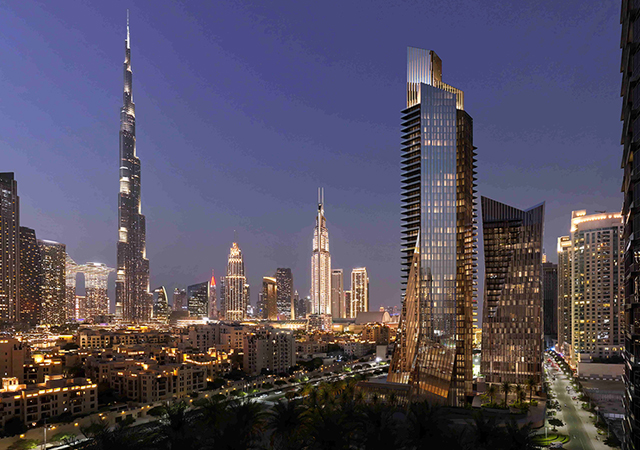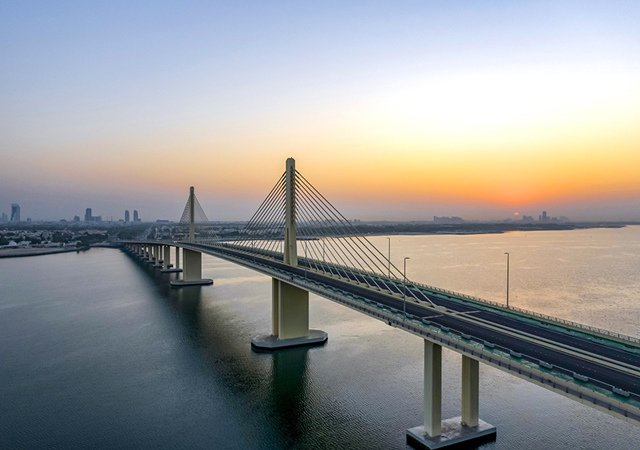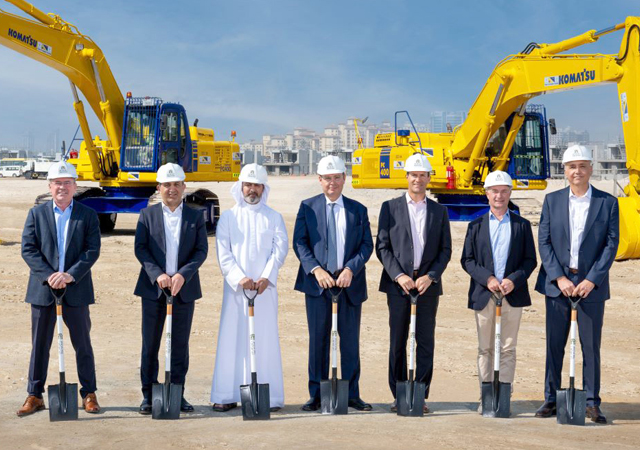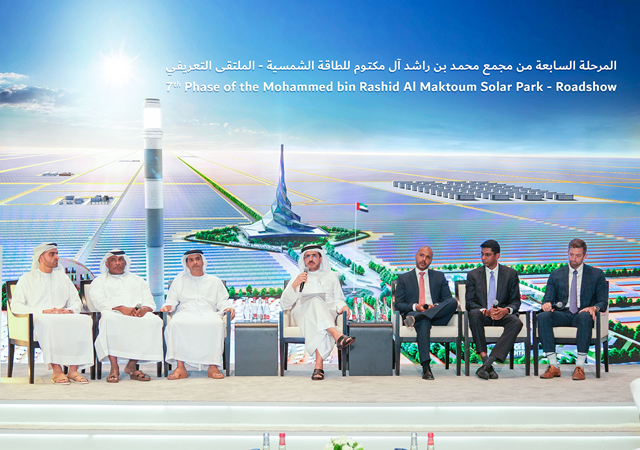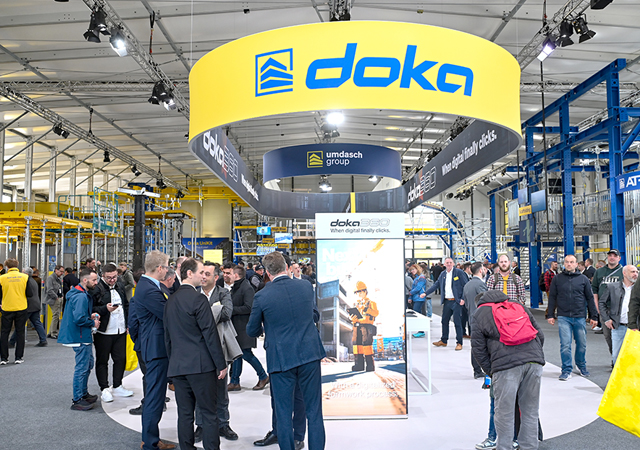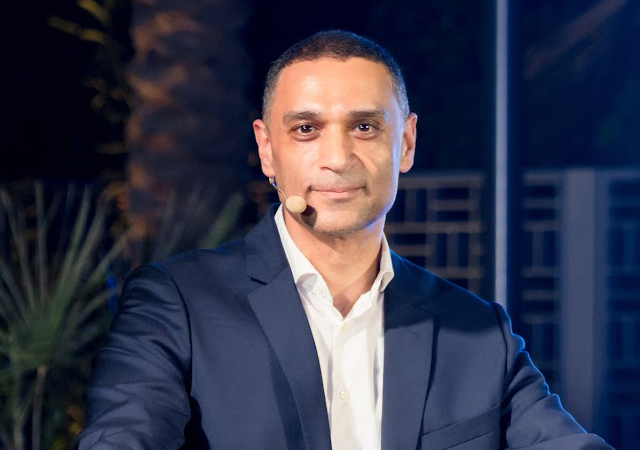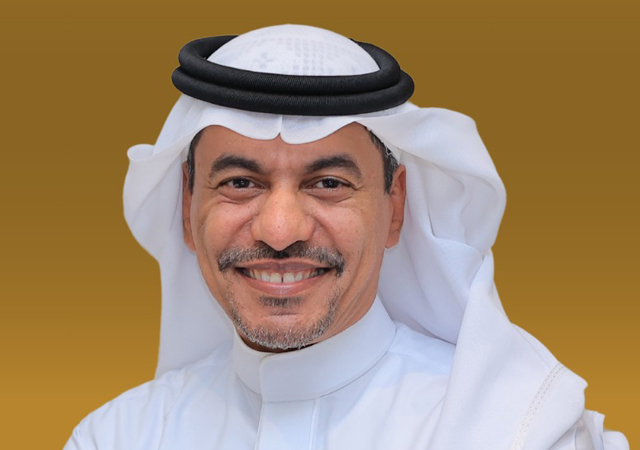
 An installation by Amiantit ... maximum endurance.
An installation by Amiantit ... maximum endurance.
THE AMIANTIT Group, a global leader in the fields of pipe manufacturing and pipe technologies, has been actively pursuing a policy of continuous innovation despite the global credit crunch and has confidently risen to the challenges of many of the region’s fast-track and demanding projects.
In the face of the economic crisis, while other organisations have been downsizing, especially in marketing, research and development, and product innovations, the Saudi-based company has been increasing its investment in research and development in a bid to innovate and launch new products, according to a spokesman.
One of such new developments is the fibreglass-coated concrete pressure pipe (FCPP), which is an in-house modification to the concrete cylinder pressure pipe (CCP).
“The new enhancements maximise the pipe’s endurance against the Gulf’s harsh fluid environment. The FCPP product line has been developed to serve the local municipal markets and is designed to be used in potable, raw water and treated effluent applications,” says the spokesman.
Another new ongoing product development by Amiantit is a specialised glass reinforced epoxy (GRE) pipe for oil and gas lines. “This long-awaited product, which will soon be available, will reduce huge expenses incurred on oil line and gas line maintenance and rehabilitation. It will offer all the advantages of Amiantit’s current, already-available GRE pipe programme but with higher pressure and resistance to surge hammer,” he adds.
For more than 40 years, the wholly-owned or joint-venture group facilities have supported global infrastructure development projects, through a presence in more than 70 countries, and delivered a wide range of pipes and pipe services to municipal, industrial, agricultural and energy markets.
The group acts on an international level and manufactures high quality pipe systems. It also researches, develops, owns and licenses advanced pipe technologies and provides water management services.
The company has geared itself to face the economic upheaval head-on by employing efficient leadership and innovative strategies, according to the spokesman. “Sticking to a strict masterplan, Amiantit is confident of minimising the effects of the economical crisis to the group, through increasing its extending the research and development budget, as well as continuously releasing new or improved products,” says the spokesman.
Being such a large and experienced organization, Amiantit’s expertise has been in high demand for difficult and challenging projects.
This year the company was selected as the preferred pipe supplier for the Saudi Arabian Kayan petrochemical complex in Jubail, Saudi Arabia. This project included seawater supply/return GRP (glass-reinforced plastic) pipelines with a maximum pipe diameter of DN4,000 mm and a pressure class of 16 bar. The installation was both aboveground and underground.
“This project posed challenges to Amiantit on account of the large production quantity requirement and the short delivery time. The project also entailed the initial delivery of the pipe-headers for the cooling islands consisting of DN 2,700 mm, DN 3,500 mm and DN 4,000 mm GRP pipes,” says the spokesman.
“The entire plant was fully dedicated to deliver the first installment of pipes on time, because delays on Amiantit’s part would have stalled progress of the rest of the project. The efficient coordination and communication during the entire project were evidence of Amiantit’s highly-skilled project management,” he points out.
Among its several other successful projects is the Maadin project for the Maadin Phosphate Company. This project called for seawater supply/return lines made from GRP with maximum pipe diameters of DN2,700 mm and a pressure class of 16 bar.
“It also includes specially-designed and manufactured goose-neck spools in diameters of DN 2,400 mm and DN 2,700 mm,” the spokesman continues. “The detailed spool designing, manufacturing and delivery had to be coordinated in parallel during the whole project. Most of these spools will be finally assembled and fitted on site by experienced field engineers.”
The challenges on these projects are compounded by the fact that the above-mentioned large projects are to be executed at the same time with the same complexity and deadlines by the year-end, he adds.
“However, Amiantit’s experience and extensive production facilities in the Gulf region, enables the company to overcome these challenges by accurate, production, coordination and delivery planning,” the spokesman says.
Due to a worldwide 100 per cent compatibility of the delivered GRP pipes, production was split between the Saudi Arabia manufacturing facilities in Dammam and Jeddah. This optimised the workload on each production line and guaranteed delivery by the agreed completion date.
The spokesman continues: “To ensure top quality, each piece of pipe is hydro-tested and quality checked before sending it to the work sites. This is a standard procedure during the overall production process for all manufactured pressure pipes and defined in the Amiantit quality standards.
“Delivery is effectively coordinated with the contractor and the consulting engineers. Some products such as spools cannot be delivered in one piece due to the size and load restrictions of the highways. Hence, they are usually cut and delivered in sections and final assembly then takes place on site.
“The whole production and assembly is constantly supervised by experienced field engineers from Amiantit, who make sure that all spools are properly assembled and that the pipeline installation takes place smoothly.”
The Saudi Arabian Amiantit Company was established in 1968 in Dammam to meet the pipe requirements of the local market. Since then, it has grown and developed into a major diversified industrial group with operations spanning the globe.
Today, the company provides total solutions to customers’ fluid transfer needs, designed to optimise the applied technology and costs. Specialist services include project consultancy, custom design and on-site assistance for contractors. Full-scale system installation services are also available.
The group comprises more than 30 manufacturing plants, six technology companies, various water management companies and several material suppliers, both within the kingdom and abroad that manufacture various kinds of pipes, joints, fittings, tanks, rubber products and related accessories. Other activities include own and transfer technology, and water project consultancy and management all around the world.
Amiantit’s core business activities comprise manufacturing and sale of pipe systems and storage tanks; ownership and sale of pipe technologies; provision of water management consultancy and engineering services; and manufacturing and supply of polymer products. In addition, an extensive sales and service network caters for the need of customers around the world.


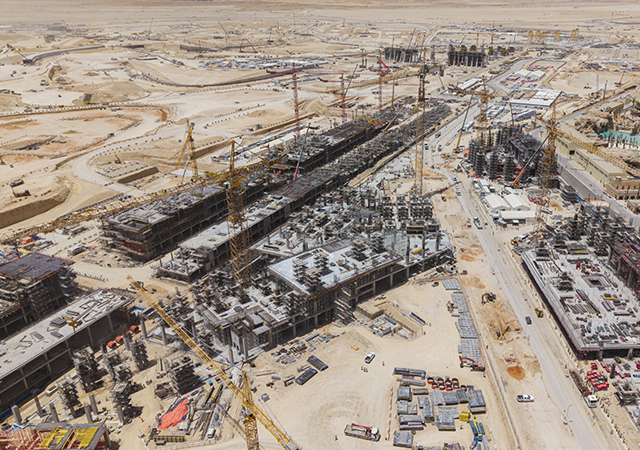
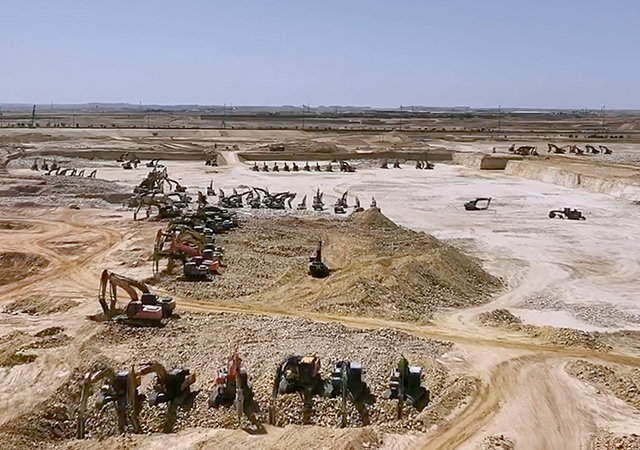
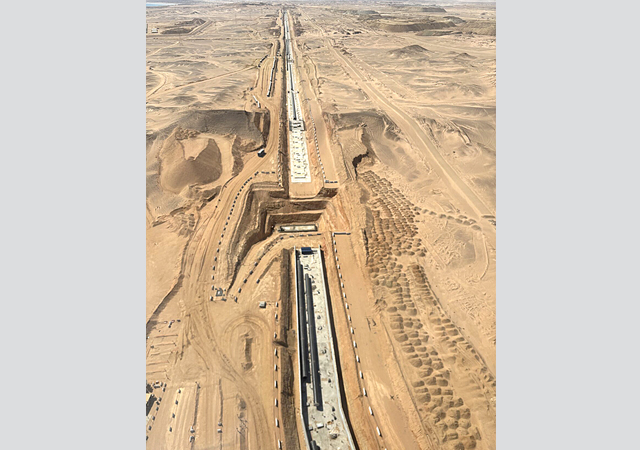



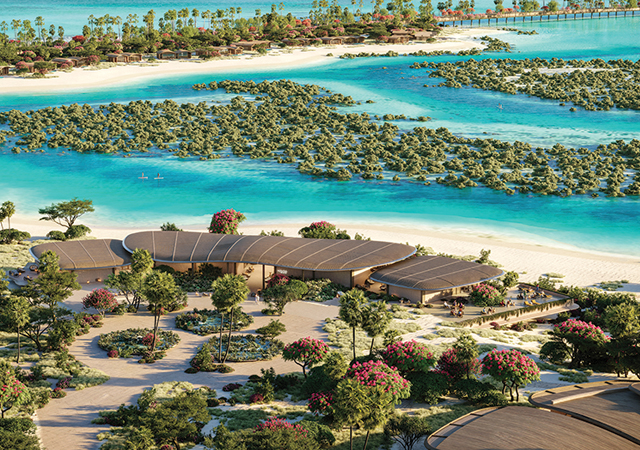

 BIG.jpg)
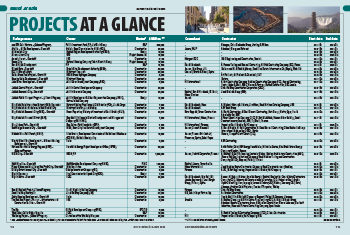
.jpg)
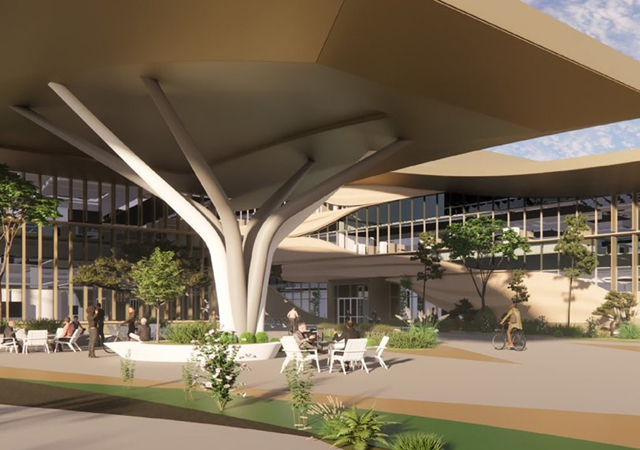

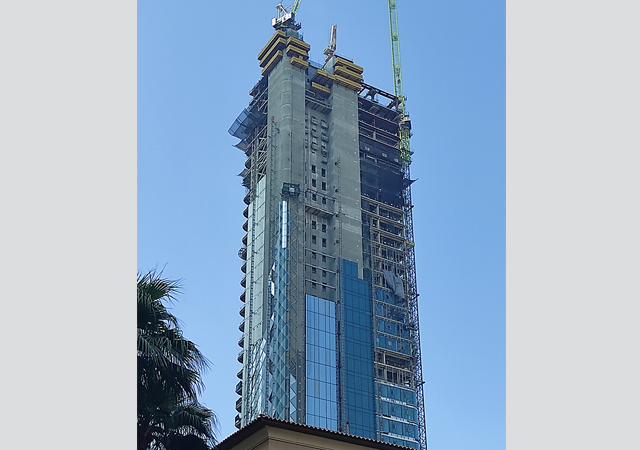
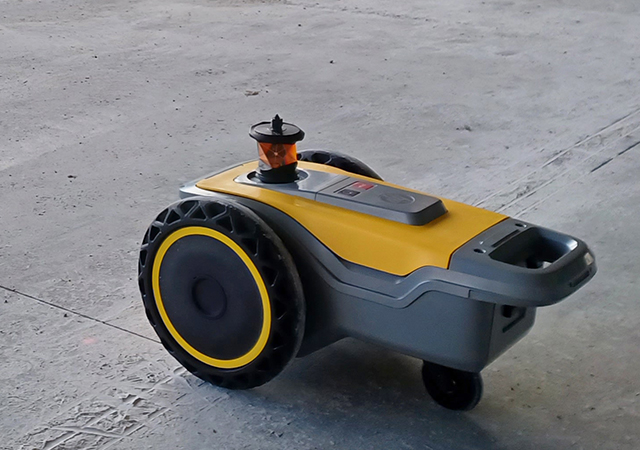
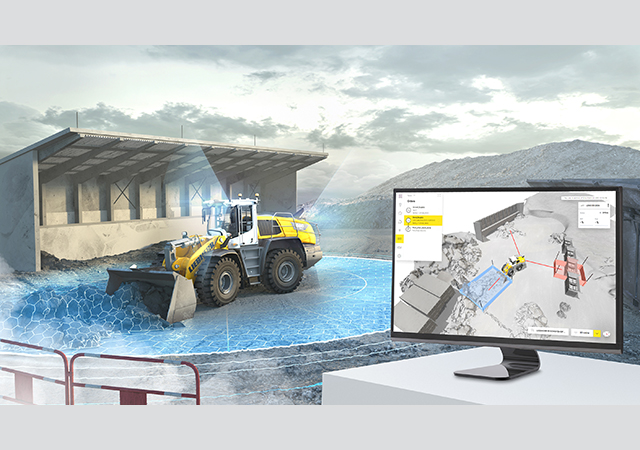
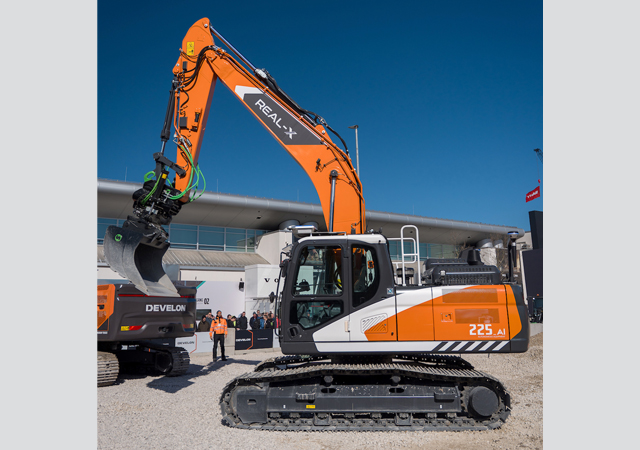
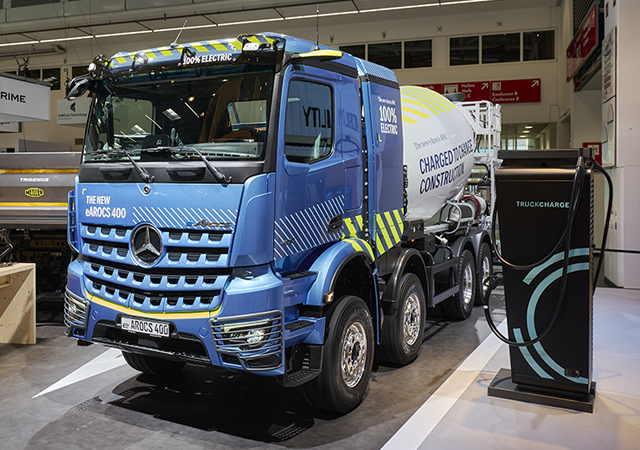

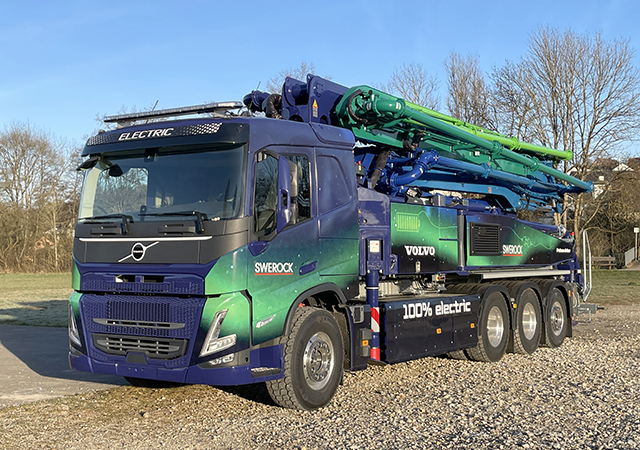

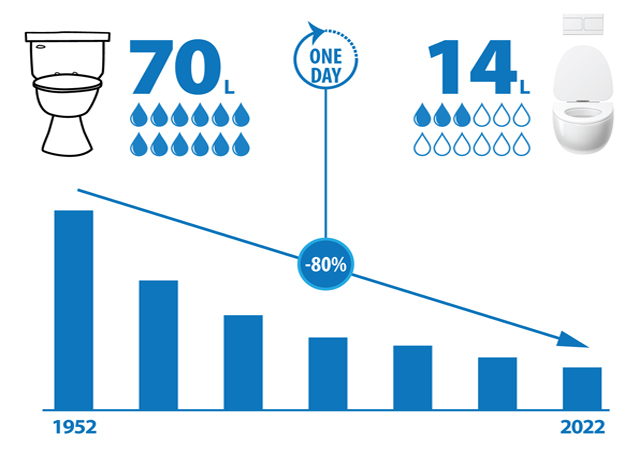

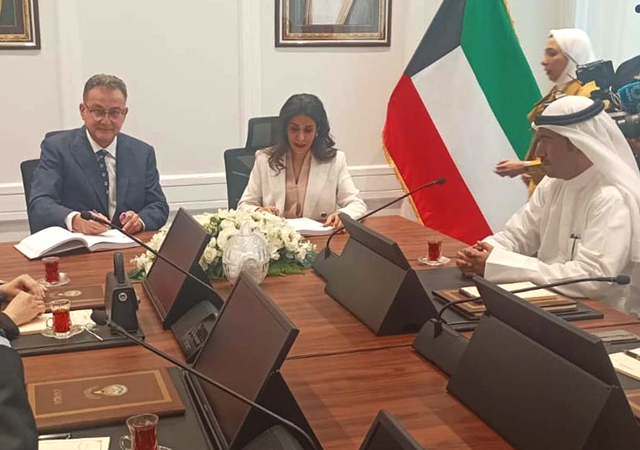
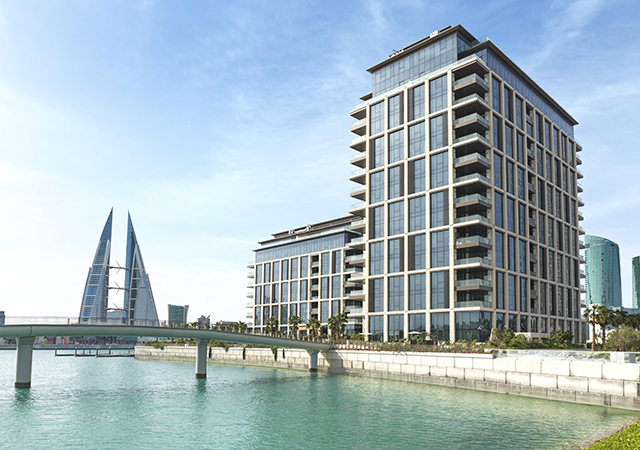
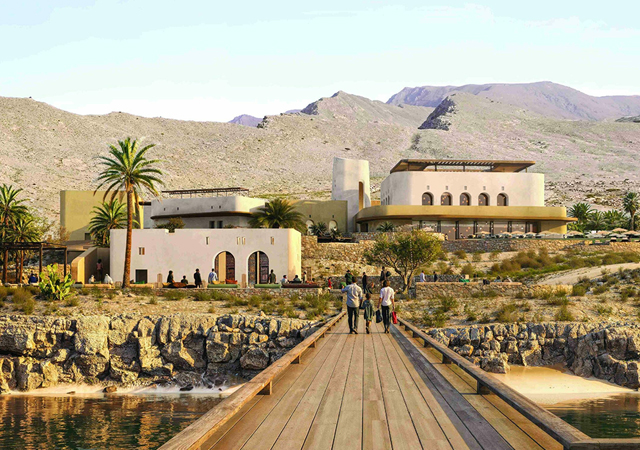
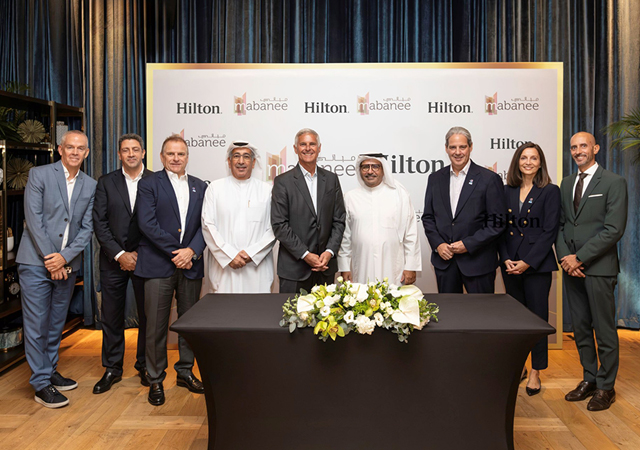


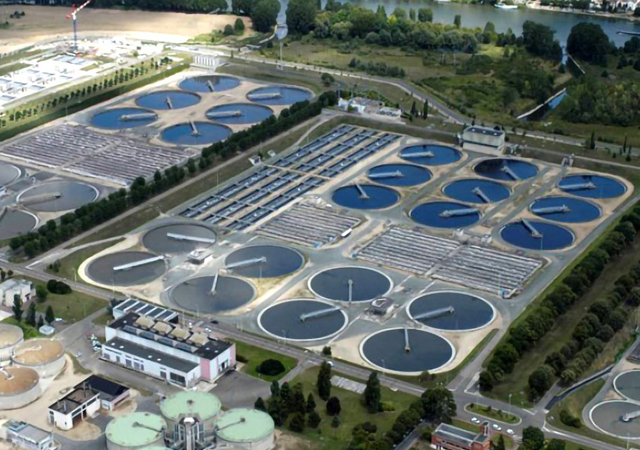
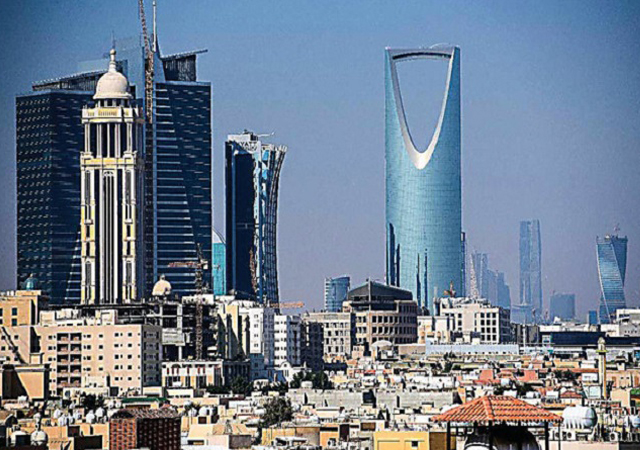

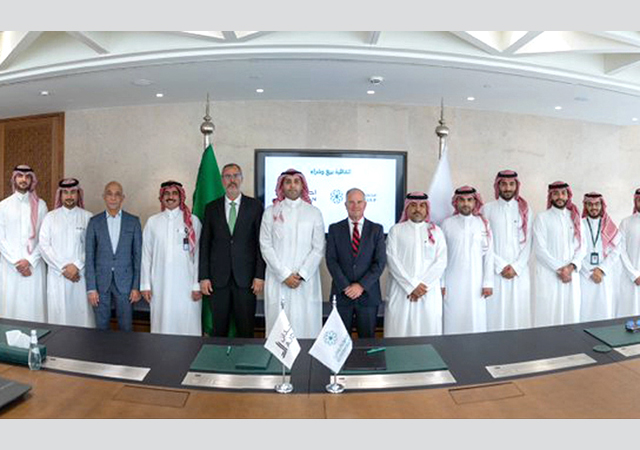
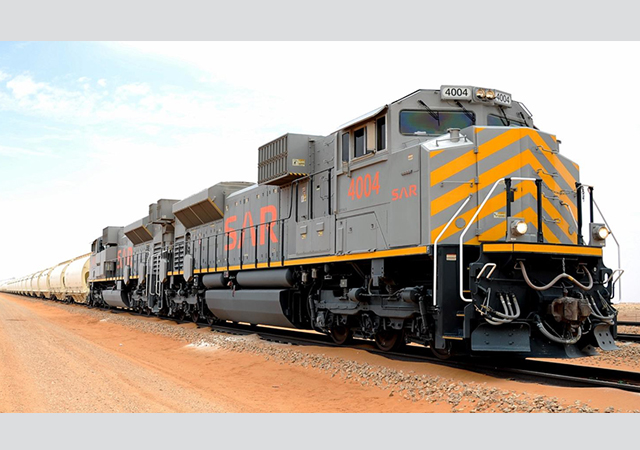
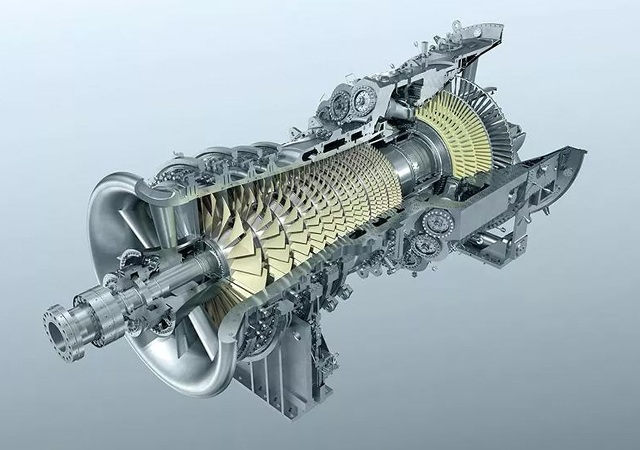
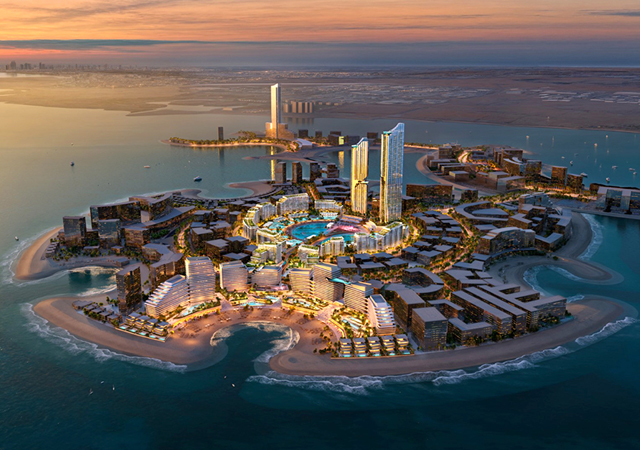
.jpg)

